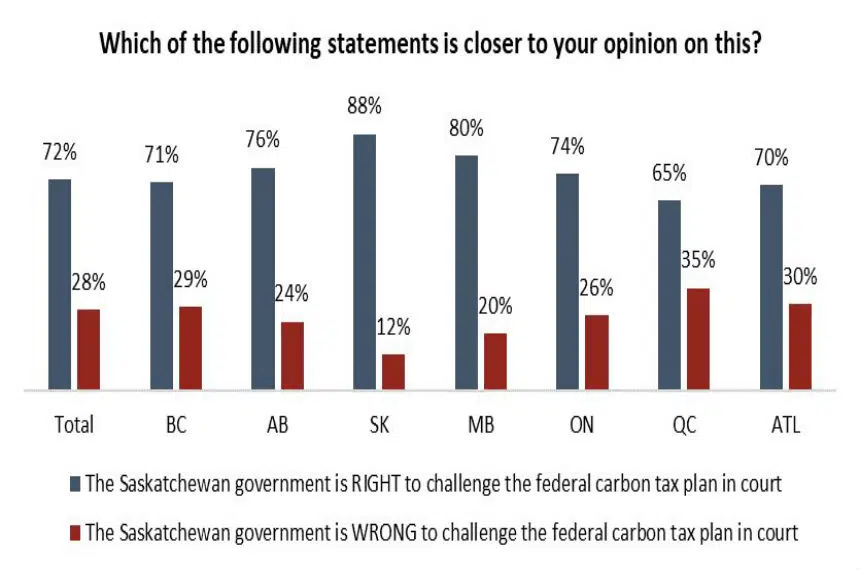A new Angus Reid poll shows two out of three Canadians agree provinces should have the final say in carbon taxes instead of the federal government.
The same poll shows 88 per cent of respondents in the province support the Saskatchewan government challenging the federal government’s carbon tax plan in court. Across Canada 72 per cent of respondents also agreed with the court challenge.
Most say the Saskatchewan government is right to challenge the federal carbon tax plan in court, including 88% of Saskatchewan residents:
https://t.co/OQZ2zAWHqw #cdnpoli pic.twitter.com/9WQzvvPGUN— Angus Reid Institute (@angusreidorg) July 26, 2018
The poll results also show a split across partisan lines, with 82 per cent of past Conservative voters agreeing provinces should have control over carbon pricing. Even past Liberal and NDP voters were divided on the issue, with 48 per cent and 52 per cent respectively agreeing provinces should have control.
On a national level, support for the federal carbon plan overall has dropped slightly from 56 per cent to 45 per cent since 2015. Support for carbon pricing is highest among younger people with 62 per cent support in the 18 to 34 age range. The majority of people responding to the poll over the age of 35 oppose the carbon plan at 59 per cent for people between 35 and 54 and 64 per cent of people over 55 opposing it.
According to the poll, only 53 per cent of Canadians would support a cap and trade program for carbon emissions compared to 74 per cent who responded in favour of this program in 2015. Opposition to cap and trade is highest in Saskatchewan and Alberta at 69 per cent and 67 per cent.
53% say they support a cap and trade system in their province. This support is highest in Quebec:https://t.co/OQZ2zAWHqw#canpoli pic.twitter.com/yevFfx6LJN
— Angus Reid Institute (@angusreidorg) July 26, 2018
The poll results come from an online survey conducted between July 18 and 23 from a representative, random sample of 1,500 people who signed up to respond to Angus Reid polls as part of the Angus Reid Forum. The Angus Reid Institute reports a margin of error of 2.2 per cent 19 times out of 20.











